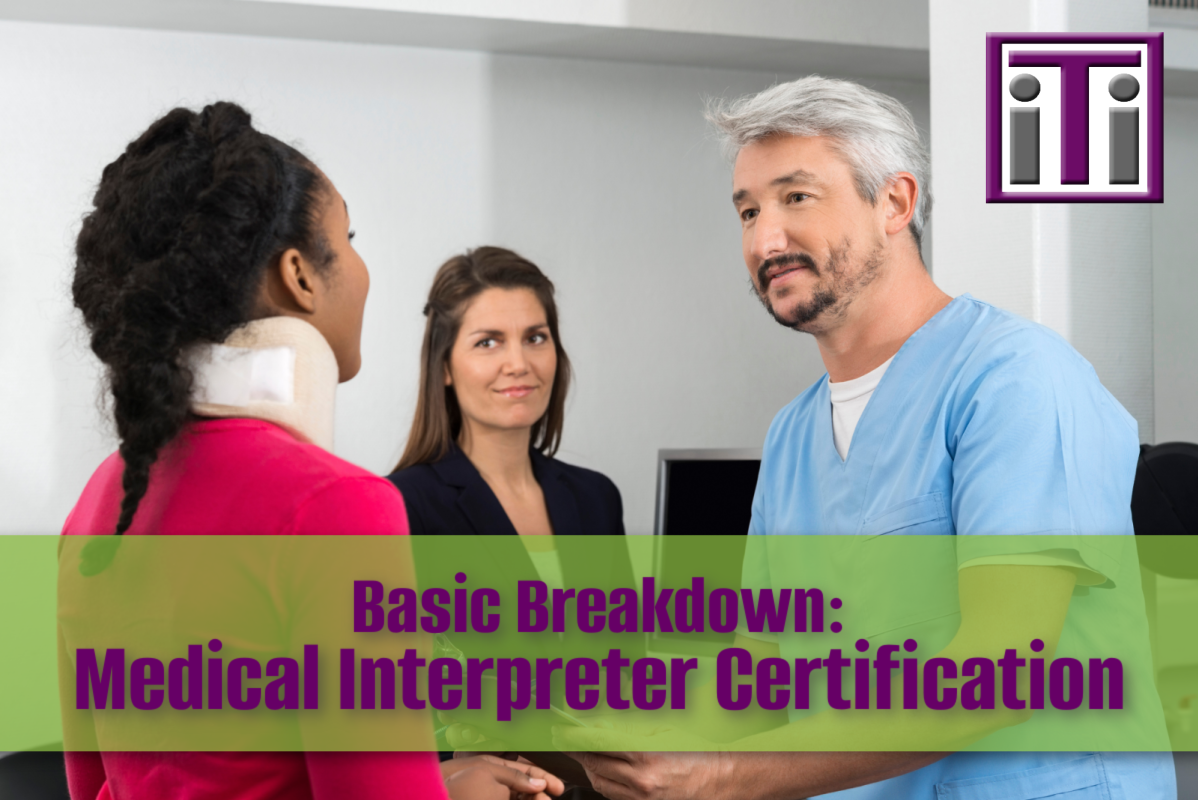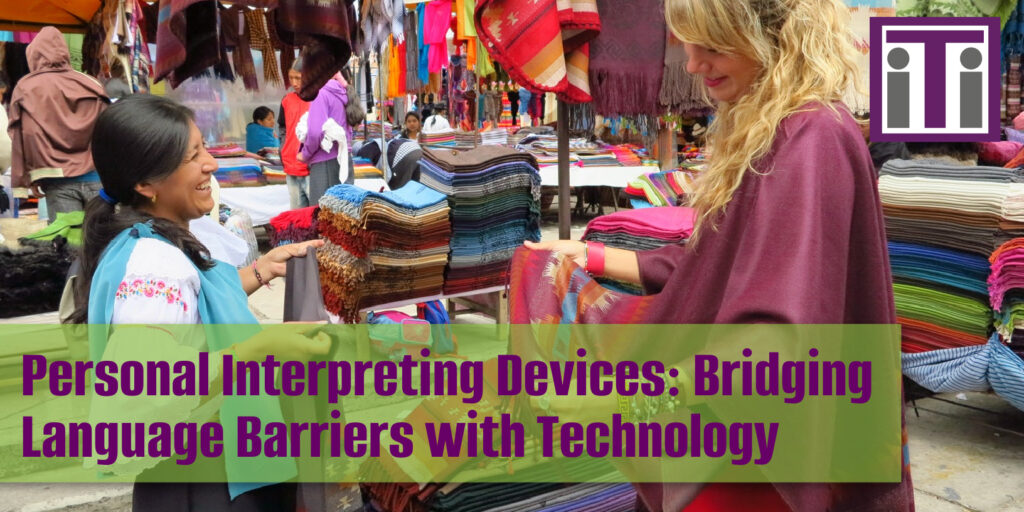How to Become a Medical Interpreter
Reading Time: ~5 mins
The Law Regarding Medical Interpreting is Changing.
Section 1557 of the Affordable Care Act (ACA) is being amended. It will require medical providers to document they are working with a “qualified interpreter.”
Healthcare providers who receive government funding must only use Qualified or Certified medical interpreters for assignments. This will include most hospitals and many other medical practices.
Why Become a Qualified Medical Interpreter?
More and better job opportunities.
There is a very high demand for trained, professional interpreters in the United States. According the the U.S. Bureau of Labor Statistics, total employment for interpreters is projected to grow by 20% by 2031.
This growth rate is significantly higher than the ‘All Occupations’ national average of 7%. In 2021, the top 10% of interpreters commanded more the $47 per hour.
To be a top tier interpreter, it is best to specialize. Use continuing education to become an expert in that field to excel.
Interpreting for healthcare is a great choice. Demand for language services for Limited-English Proficient (LEP) patients will only increase. Federal regulators are paying close attention to make sure these services are provided.
Spanish remains the most commonly requested target language, and Spanish interpreters are in high demand. However, other languages are becoming increasingly popular and interpreters who are qualified to interpret hard-to-find languages often command higher wages.
Medical Interpreting is a rewarding profession.
Medical interpreting is also highly rewarding on a personal level. It is important to note that certain situations, like end-of-life discussions, can be very difficult.
Interpreters must stay unbiased. However, it is still rewarding to know that you have helped doctors and patients communicate. Without your assistance, they may have been lost and helpless.
What is the Difference Between a “Qualified” and a “Certified” Medical Interpreter?
A Qualified Medical Interpreter:
- Is at least 18 years of age.
- Has a high school diploma or equivalent (GED).
- Has proof of bilingualism and literacy through a validated language proficiency test.
- Can provide a certificate of completion for a 40-hour medical interpreter training course.
A Certified Medical Interpreter:
- Has proof of bilingualism and literacy through a validated language proficiency test.
- Can provide a certificate of completion for a professional interpreter training course of at least 40 hours.
- They have passed a certification exam from a qualifying organization. These organization are the National Board of Certification for Medical Interpreters (NBCMI) and the Certification Commission for Healthcare Interpreters (CCHI).
Why Become a Certified Medical Interpreter?
According to the National Board of Certification For Medical Interpreters, reasons for becoming a Certified Medical Interpreter (CMI) include:
- Recognition. Industry stakeholders recognize CMIs for their quality work, and the CMI credential crosses state lines.
- Authority. Healthcare providers recognize the NBCMI and CCHI as authorities on medical interpreter skills. Having proof that you’ve passed a certification exam gives you instant credibility with potential clients and employers.
Can iTi help me become a Certified Medical Interpreter?
Yes! Here are the steps you need to complete:
1. Take our Training course.
iTi’s 40-hour Medical Interpreter Training program is a nationally recognized curriculum. We use the same textbooks as medical interpreter schools and universities.
Our training curriculum is endorsed by CCHI as a “prerequisite program” in that it delivers from two perspectives:
1. Interpreting in healthcare ethical principles.
2. National standard interpreting protocols.
The course is based on the federal standards for providing “Culturally and Linguistically Appropriate Services” as defined by the U.S. Department of Health and Human Services. It also complies with national standards of practice for healthcare interpreting as issued by the National Council on Interpreting in Health Care.
The training focuses on:
- Interpreting techniques
- Medical/mental health terminology and colloquial language
- Developing an understanding of communication strategies
- Developing listening and memorization skills
- Ethical guidelines
- Decision-making
Upon completion of the course and the final exam, you will receive a Certificate of Completion. This will make you a Qualified Medical Interpreter as recognized by the Affordable Care Act. Many language service companies and medical facilities will hire qualified interpreters without certification.
For information about our upcoming classes, go to our Medical Interpreting Calendar page.
2. Get certified through a national board.
Even though completing our course will have already made you “Qualified,” you may wish to go farther. Many healthcare providers are raising their standards and asking for Certified Medical Interpreters.
Successfully completing iTi’s course will prepare you for the written exams and oral exams for either certification organization. After you have completed the course, we will be happy to assist you in finding the information you need to apply for and complete the certification exams.
What Organizations Provide Medical Interpreter Certification?
There are presently two national boards that certify medical interpreters.
Certification Commission For Healthcare Interpreters (CCHI)
CCHI was founded in July 2009 with the purpose to develop and administer a comprehensive certification program for healthcare interpreters. This is to help ensure quality of interpreting in any healthcare setting and in any modality of interpreting.
CCHI is “the first and only organization certifying healthcare interpreters to receive NCCA accreditation for its certification programs.”
The National Board of Certification For Medical Interpreters (NBCMI)
NCBMI offers “the most prestigious credential available in the field of medical interpreting.” Their exams test adequate knowledge of the medical interpreting profession. They include ethics, standards of practice, role boundaries and medical terminology, among other important competencies.
Interested in taking our Medical Interpreter Training course?
- If you are an interpreter, click HERE to find out more.
- If you are a healthcare provider interested in training for your bilingual employees, click HERE or call us directly at 860.968.6777.
Check this related post “Requirements and Roles of Medical Interpreters“
Originally posted September 4, 2018. Updated with new information and for readability 6/1/2023.






